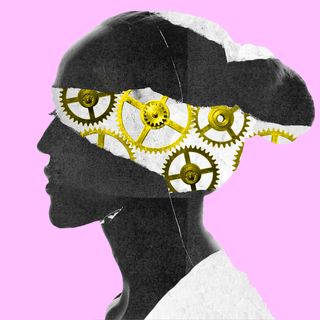With discussions surrounding neurodiversity and neurodivergence gaining prominence in the realm of mental health advocacy and disability studies, awareness around the subjects is growing. But perhaps due to their phonetic similarities, people tend to use the terms interchangeably, ignoring the crucial distinctions between them. To begin with, the term "neurodivergent" can be used for an individual; "neurodiverse," however, refers to a group of individuals -- even to the entirety of humankind itself, referring to the diversity of neurotypes among us.
Coined in the late 1990s by Judy Singer, an Australian sociologist, the term "neurodiversity" was reportedly born out of an attempt to "promote equality and inclusion of neurological minorities" and "increase acceptance and inclusion of all people while embracing neurological differences." As a social justice movement rooted in self-advocacy, neurodiversity asserts that diversity in neurological functioning is as valid as other forms of human diversity, such as race and gender. In doing so, it challenges the pathologization and stigmatization historically associated with autism, ADHD, dyslexia, and a host of other mental health diagnoses.
Meanwhile, the term "neurodivergence" was, coined more recently by autistic activist Kassiane Asasumasu in a bid to "fill the need for a term with a wider definition that didn’t center autism." Like neurodiversity, neurodivergence, too, acknowledges that one's neurological makeup may diverge from the normative -- commonly called "neurotypical" -- standards. But contrary to neurodiversity, neurodivergence focuses on the individual's experience of their own neurology and identity, rather than focusing on society at large. As such, neurodivergence is a self-identifying term and underscores the autonomy and self-determination of individuals in defining their lived, neurocognitive experiences.
The Link Between Neurodivergence and Queerness, Explained
"Humans, as a species, are neurodiverse because no two people’s minds and brains are the same. But if you mean that your brain [or] mind doesn’t function in a way that’s considered 'normal,' then... that means you’re 'neurodivergent,'" notes Cara Liebowitz, a multiply-disabled activist and writer. "Being neurodivergent means that your brain and mind don’t function in conventional ways."
Both terms have emerged as an integral part of the vocabulary surrounding disabilities. But using them interchangeably poses the risk of erasing the individual autonomy of neurodivergent people and homogenizing their diverse lived experiences. It could also potentially silence voices that may not align with the broader neurodiversity movement since interchanging the terms can oversimplify the wide variety of issues faced by a range of neurodivergent individuals in a world where their neurotype isn't the normative one.
The oversimplification can occur thus: while neurodiversity encompasses broader social and political goals, such as advocating for inclusive education and workplace accommodations, neurodivergence focuses on the deeply personal and individual experiences of neurodivergent individuals; conflating the two can hinder efforts to address both systemic barriers and individual needs effectively.
"Diversity is a property of groups. It requires variability between things. You only have a diverse range of herbs in your cupboard if you have lots of different ones. Lovage is not 'diverse' while parsley is 'typical.' 'Diverse' is not a synonym for 'rare.' Rather, lovage, basil, thyme, and parsley make up a diverse group of herbs," argues Sue Fletcher-Watson, a senior lecturer at the Center for Clinical Brain Sciences, University of Edinburgh. "[I]f we start to use 'neurodiverse' only to describe people whose neurotype differs from the neurotypical majority, we recreate the 'us-and-them' boundaries that lead inexorably to ableism, [and] 'neurodiverse' becomes a synonym for 'you are different from me' when it should mean 'we are different from each other.'"




